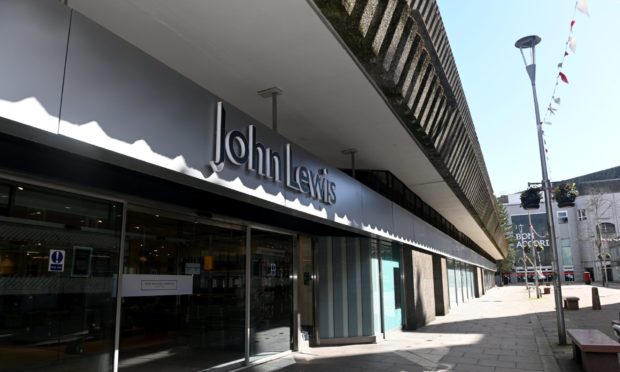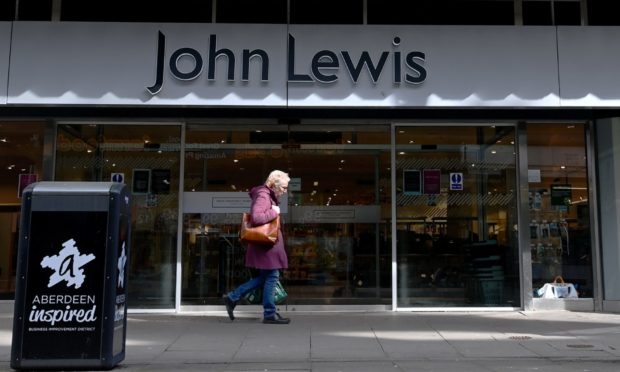The high cost of transporting stock to the north-east has been revealed as one of the reasons behind the closure of the John Lewis store in Aberdeen.
It comes as the retail giant announced it would permanently close its 200,000-square-foot store after 32 years in the busy shopping centre – with the loss of up to 265 jobs.
However, a spokeswoman for the company denied that transport costs were a “major” factor in the closure of the Aberdeen store.
The department store chain said in March that it was shutting eight shops across the UK, in addition to the eight closures announced last summer.
The closures put 1400 jobs at risk across the UK after the firm declared its first-ever annual loss last year amid the coronavirus pandemic.
A spokeswoman for John Lewis said: “While stock transport costs were one of many reasons behind our proposal to close the Aberdeen shop, it would be inaccurate to suggest it was the sole – or even major – reason behind the proposals.”
It follows a series of other shop closures across the city, including the Disney Store, which has operated within its Bon Accord retail unit since 1997, also announced it would not reopen.
Bosses at the Bon Accord and St Nicolas Centre, situated in the heart of the Granite City, have seen big high street brands such as Topshop, Dorothy Perkins, Warehouse, River Island and Laura Ashley all shut up shop since March last year.
Save Our Shops campaign
The closure of John Lewis prompted the Press and Journal to launch its Save Our Shops campaign last month.
A city taskforce made up of local authority officials, business leaders and commerce chiefs has also held crisis talks with the high street giant in an effort to keep the brand in the north-east.
At the end of March bosses at the retailer revealed they were willing to explore other options, including the possibility of opening a Waitrose with a smaller John Lewis included at another city-centre site.
John Lewis in consultation with workers
The Aberdeen store is one of eight John Lewis shops proposed for closure, as the retailing giant rebalances its estate as customers’ shopping habits change.
The John Lewis Partnership is entering into consultation with the affected workers, with around 250 employees impacted in the Granite City.
The department store believes that the performance of these stores cannot be “substantially improved” with them expecting 60-70% of sales to be made online in the future.
Already this year, the city centre has lost Debenhams, Dorothy Perkins, Burtons, Wallis and Topshop/Topman.


